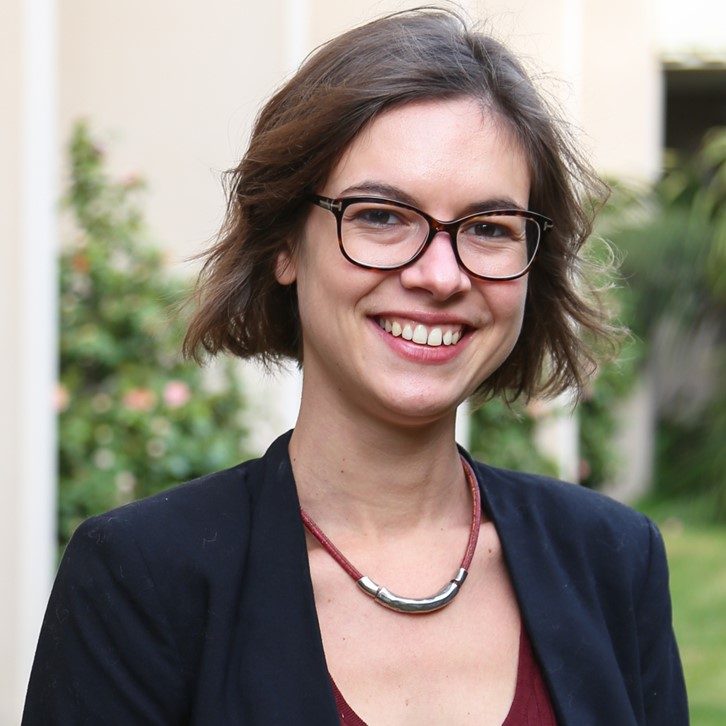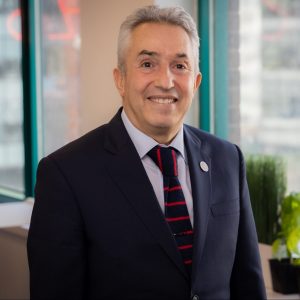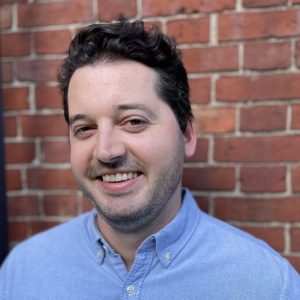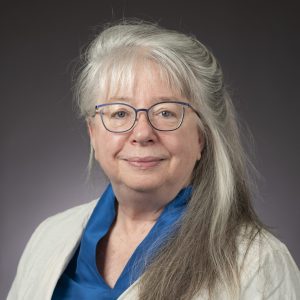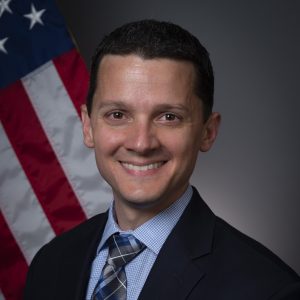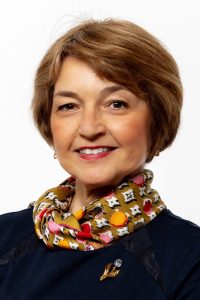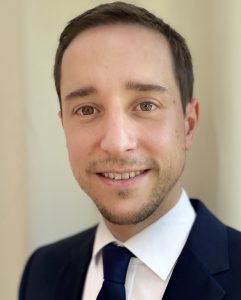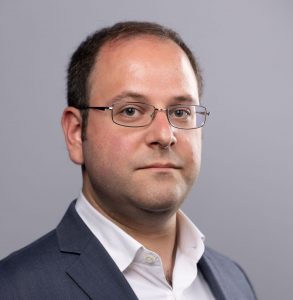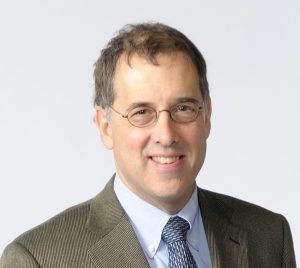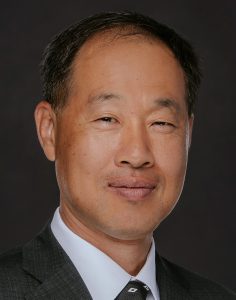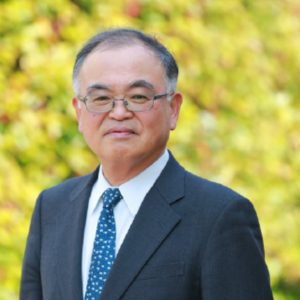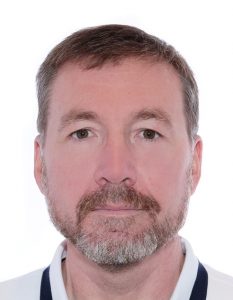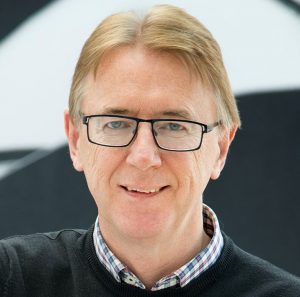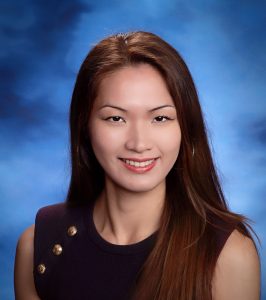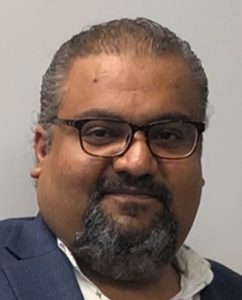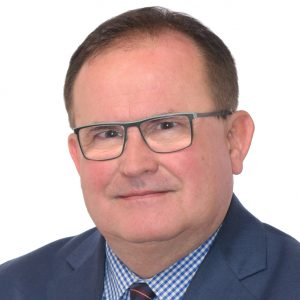Division
Battery Division Early Career Award Sponsored by Neware Technology Limited
Tuesday, 1520h/Room 316A (Level 3, Hawaii Convention Center)
Spin Probes and Materials Design for Next-Generation Batteries
by Raphaële Clément
Raphaële Clément is Assistant Professor in the Materials Department at the University of California, Santa Barbara (UCSB). The Clément Group focuses on establishing materials design rules and optimizing materials processing approaches to advance electrochemical energy storage. The group’s expertise lies in developing and deploying magnetic resonance and magnetometry techniques (experimental and computational) for the study of battery materials and beyond, with an emphasis on real-time, operando analysis. Prof. Clément obtained her PhD in Chemistry in 2016 from the University of Cambridge, working under the supervision of Prof. Dame Clare Grey. She then completed a postdoc in Prof. Gerbrand Ceder’s Group at the University of California, Berkeley before joining the UCSB faculty in 2018. Prof. Clement has published over 80 papers in peer-reviewed journals with over 6,300 citations (Google Scholar). A Topical Editor for ACS Energy Letters, she received the 2024 Camille Dreyfus Teacher-Scholar Award and IBA Early Career Researcher Award; 2023 Materials Today Rising Star Award and ISE (International Society of Electrochemistry) Prize in Electrochemical Materials Science; and a 2022 NSF CAREER award. She became an ECS member in 2015.
Battery Division Postdoctoral Associate Research Award Sponsored by MTI Corporation and the Jiang Family Foundation
Tuesday, 1420h/Room 316A (Level 3, Hawaii Convention Center)
Advancements and Challenges of Wide Temperature Electrolytes for Next-Generation Lithium Batteries
By Jijian Xu
Jijian Xu is currently Assistant Professor in the Department of Chemistry at City University of Hong Kong. His research interests focus on developing advanced electrolytes and novel electrode materials for high-energy batteries. He received his BS (2014) and PhD (2019) from Zhejiang University, followed by a three-year postdoc with Prof. Chunsheng Wang, and appointment as Assistant Research Scientist at the University of Maryland. He then joined the City University of Hong Kong, setting up his research group in 2023. He has authored more than 70 peer-reviewed papers in Nature, Science, Nature Energy, Nature Synthesis, Nature Reviews Chemistry, Joule, Advanced Materials (5), and other publications, with over 4900 citations and an h-index of 32 (Google Scholar). Dr. Xu is a guest editor of Energy Storage Materials and youth editorial board member of Nano-Micro Letters, eScience, Materials Futures, and Battery Energy. He has more than 10 Chinese and PCT invention patents, two of which were granted to companies for commercialization.
Battery Division Postdoctoral Associate Research Award Sponsored by MTI Corporation and the Jiang Family Foundation
Silicon SEI Instability and its Effect on Calendar Aging
By Josefine McBrayer
Josefine McBrayer is Principal Investigator at Sandia National Laboratories (SNL) and team lead for the Department of Energy (DOE) Vehicle Technologies Office (VTO) Silicon Consortium Project. She obtained her PhD in Chemical Engineering at the University of Utah (U of U) for her research on the solid electrolyte interphase of silicon anodes in lithium ion batteries for electric vehicles. Prior to that, she received a BS Summa Cum Laude in Chemical Engineering and MS in Nanoscience And Microsystems Engineering with Distinction from the University of New Mexico. Dr. McBrayer completed her MS thesis work at SNL on the use of in situ Raman to study polysulfide speciation in lithium sulfur batteries. While at UNM, she received awards recognizing her as an outstanding senior and leader in engineering programs. She earned SNL’s Truman Postdoctoral Fellowship for her proposed new initiatives on garnet solid electrolytes and lithium metal anodes. SNL management acknowledged Dr. McBrayer and her peers with awards for outstanding technical achievement. Active in the Sandia Women Action Network (SWAN) and Society of Women Engineers (SWE), she mentors engineering and battery students.
Battery Division Research Award
Tuesday, 1640h/Room 316A (Level 3, Hawaii Convention Center)
Sustainable LiFePO4 and LiMnxFe1-XPO4 (x = 0.1 to 1) Cathode Materials for Lithium-Ion Batteries: From Materials to Systems
By Karim Zaghib
Karim Zaghib is Professor of Chemical and Materials Engineering at Concordia University and CEO of Volt-Age (Canada First Research Excellence Fund). Before joining Concordia in 2022, he worked at Hydro-Québec for 28 years, founding and leading the Center of Excellence in Transportation Electrification and Energy Storage. As Senior Director of Research at Hydro-Québec, he helped make it the world’s first company to devise and use lithium iron phosphate cathodes and to develop natural graphite and nanotitanate anodes. Dr. Zaghib is one of the pioneers of the first commercial solid state lithium-metal battery, the two-electrode photobattery, and ionic liquids with the introduction of LiFSI. Through Esstalion, a joint venture of Sony Corporation and Hydro-Québec, he developed MWh high-capacity energy storage systems based on LFP for applications in the smart grid. Dr. Zaghib is named as an inventor on over 973 patents, which led to 62 licenses worldwide. He co-authored 420 scientific articles, edited or co-edited 20 monographs, and co-authored the textbook Lithium Batteries: Science and Technology (Springer, 2016). He obtained his PhD in Electrochemistry in 1990 from the Institut National Polytechnique de Grenoble and Habilitation in Physics from the Université Pierre-et-Marie-Curie in 2002. An ECS member since 1993, the Society honored Dr. Zaghib with Fellow of The Electrochemical Society (2011), 2013 ECS Battery Division Technology Award, and 2010 Energy Technology Research Award. He is a Fellow of the Royal Society of Chemistry, Royal Society of Canada, and Canadian Academy of Engineering.
Battery Division Student Research Award Sponsored by Mercedes-Benz Research & Development
Tuesday, 1400h/Room 316A (Level 3, Hawaii Convention Center)
High-Throughput Electrochemical Characterization of Aqueous Organic Redox Flow Batteries
By Eric Fell
Eric Fell is currently exploring high-throughput electrochemical techniques for the screening of redox-active molecules for aqueous organic flow batteries in the Michael Aziz Group at Harvard University. While he is constantly excited about energy storage, he also has a passion for nuclear science, CO2 capture, and space exploration. His scientific career began at Simon Fraser University (SFU), where he obtained his BSc in Chemistry (2017), exploring the electrochemical characterization of water splitting catalysts under the supervision of Prof. Gary Leach. Dr. Fell took part in the DAAD-RISE program researching gas sensors at the Universität Paderborn with Prof. Michael Tiemann (2015), and electrocatalysts at Ludwig-Maximilians-Universität München with Profs. Dina Fattakhova-Rohlfing and Thomas Bein (2016). Having split quite enough water, Dr. Fell then did a research about-face and worked on stabilizing aqueous electrolytes in redox flow batteries, obtaining his MSc (2021) and PhD (2024) at Harvard University under the guidance of Prof. Michael Aziz. Fell’s PhD work explored high-throughput electrochemical and computational techniques for the screening of redox-active molecules for aqueous organic redox flow batteries. He has co-authored 16 peer-reviewed papers, one US patent, and contributes to open source software for batteries and (electro)chemistry.
Battery Division Technology Award
Tuesday, 1600h/Room 316A (Level 3, Hawaii Convention Center)
Dendrite-Free Architected Zinc Anodes: Enabling Sustainable, Safe, Scalable, Rechargeable, and Manufacturable Next-Generation Aqueous Batteries
By Debra Rolison, Jeffrey Long, and Joseph Parker
Debra Rolison heads the Advanced Electrochemical Materials section at the U.S. Naval Research Laboratory. Her team designs, synthesizes, characterizes, and applies 3D structured, ultraporous, multifunctional, hold-in-your-hand nanoarchitectures for rate-critical applications such as catalysis and energy storage/conversion. Dr. Rolison was a Faculty Scholar at Florida Atlantic University, receiving her BS in Chemistry in 1975 and the Undergraduate Award in Analytical Chemistry. She completed her PhD in Chemistry at the University of North Carolina at Chapel Hill with Prof. Royce W. Murray (1980), directly joining NRL as a Staff Scientist. Dr. Rolison is a Fellow of the National Academy of Inventors, American Association for the Advancement of Science, American Chemical Society, Materials Research Society, and Association for Women in Science. Her major awards include the 2018 William H. Nichols Medal, 2017 E.O. Hulburt Award, 2015 Department of the Navy Dr. Dolores M. Etter Top Scientist & Engineer Team Award (with Drs. Joseph Parker and Jeffrey Long), 2012 Charles N. Reilley Award of the Society for Electroanalytical Chemistry, 2011 ACS Award in the Chemistry of Materials, and 2011 Hillebrand Prize. Her editorial advisory board service includes Advanced Energy Materials and ACS Applied Energy Materials, Chemical Reviews, Analytical Chemistry, Langmuir, Nano Letters, Annual Review in Analytical Chemistry, Journal of Electroanalytical Chemistry, and Encyclopedia of Nanoscience and Nanotechnology. Dr. Rolison also writes and lectures widely on issues affecting women (and men!) in science, including proposing Title IX assessments of science and engineering departments. She has authored over 275 articles and holds 49 U.S. patents.
Jeffrey Long is a Staff Scientist at the U.S. Naval Research Laboratory (NRL), where he engages in basic and applied research focused on materials development for electrochemical power sources, water purification, and catalysis. He received the 1991 Wake Forest University Undergraduate Award in Analytical Chemistry (1991) where he completed his BS in Chemistry with Honors in 1992. Dr. Long earned his PhD in Chemistry from the University of North Carolina at Chapel Hill (1997) under the tutelage of the late Kenan Professor Royce W. Murray. After being a National Research Council Postdoctoral Associate at the NRL (1997-2000), he transitioned to NRL Research Chemist. Dr. Long has co-authored over 120 peer-reviewed papers and is co-inventor on 36 issued patents and several pending applications. Dr. Long received three Young Investigator awards (2000, 2004); American Chemical Society’s 2007 R. A. Glenn Award and 2009 A. K. Doolittle Award; 2010 and 2018 NRL Edison Patent Awards; and, in 2014, was selected as the inaugural Department of Defense Laboratory Scientist of the Quarter. Dr. Long was part of a team (including Drs. Debra Rolison and Joseph Parker) that received the 2015 Delores M. Etter Top Scientists & Engineers of the Year Award, recognizing NRL-based advancements with redesigned zinc electrodes for next-generation batteries. He has been an ECS member since 1999.
Joseph Parker is a Program Officer at the U.S. Office of Naval Research where he manages the Expeditionary Energy portfolio, which invests in energy storage, energy harvesting, energy planning, and alternative fuels. He received his BS in Chemistry with High Honors at the Georgia Institute of Technology (2004) and the Undergraduate Award in Analytical Chemistry (2004). Dr. Parker earned his PhD in Chemistry from the University of North Carolina at Chapel Hill in 2010 under the tutelage of the late Kenan Prof. Royce W. Murray. He was a National Research Council Postdoctoral Associate at the U.S. Naval Research Laboratory (2010–2014), transitioning to an NRL Staff Research Chemist where he conducted basic and applied research on next-generation energy storage and electrochemical materials. Dr. Parker is co-author of over 40 peer-reviewed papers and co-inventor on nine issued patents. While at the NRL, Dr. Parker received the 11th Annual Postdoctoral Paper Award (2014), 2017 Presidential Early Career Award for Scientists and Engineers, 2018 Edison Patent Award, and was named a 2018 Fellow in the Kavli Frontiers of Science. Dr. Parker was part of the team (with Drs. Debra Rolison and Jeffrey Long) that received the 2015 Delores M. Etter Top Scientists & Engineers of the Year Award, recognizing NRL-based advancements with redesigned zinc electrodes for next-generation batteries.
Corrosion Division H. H. Uhlig Award
Tuesday, 1640h/Room 303A (Level 3, Hawaii Convention Center)
The Remarkable Versatility of Copper: From its Corrosion Resistance to Antibacterial Properties
By Ingrid Milošev
Ingrid Milošev is the Head of the Department of Physical and Organic Chemistry at the Jožef Stefan Institute and Full Professor at the Jožef Stefan International Postgraduate School. She is also Research Advisor at the Valdoltra Orthopaedic Hospital and oversees their implant retrieval programme. Her research focuses on corrosion processes and corrosion protection of technological materials, including corrosion inhibitors, sol-gel coatings, conversion coatings, and inorganic coatings. Her interest in biomedical materials comprises the studies of interactions of metallic materials with simulated body fluids and strategies to mitigate metal dissolution. After receiving a BSc in Chemical Technology from the Sveučilište u Zagrebu (1986) and PhD in Chemistry from the Univerza v Ljubljani (1993), Dr. Milošev was a Postdoctoral Fellow at Heinrich-Heine-Universität Düsseldorf (1994-1995). She joined the Jožef Stefan Institute in 1987 and was Assistant General Manager for Research and Education at Valdoltra from 2001-2019. Dr. Milošev has published some 230 papers in peer-reviewed journals and nine book chapters with over 12,700 citations (h-index of 57). She is an Associate Editor of the Journal of The Electrochemical Society, npj Materials Degradation, and CORROSION. Dr. Milošev received the 2011 Slovenian National Zois Award and 2016 Pregl Award for Exceptional Achievements in Chemistry. She joined ECS in 2007.
Corrosion Division Morris Cohen Graduate Student Award
Tuesday, 1600h/Room 303A (Level 3, Hawaii Convention Center)
Respirometric Monitoring of Corrosion
By Michael Strebl
Michael Strebl is a Postdoctoral Corrosion Researcher and Lecturer in the Department of Materials Science and Engineering at Friedrich-Alexander-Universität Erlangen-Nürnberg (FAU). His current work involves investigating the corrosion of metal catalysts in the presence of ionic liquids. Dr. Strebl obtained his BS and MS in Materials Science and Engineering and PhD at FAU. During his PhD research with the Sanna Virtanen Group, he established the respirometric approach in corrosion science and developed novel real-time methods to monitor corrosion processes based on the rate of cathodic reactions. Dr. Strebl gained experience with corrosion-protective surface pretreatments and developed conversion coatings for Mg and Al light alloys in a joint research project with Audi. In addition to his research activities, Dr. Strebl is dedicated to university teaching, giving master-level lectures, tutorials, and laboratory courses in the fields of corrosion science, electrochemistry, and surface modification. He chaired the 2024 Gordon Research Seminar on Aqueous Corrosion.
Electrodeposition Division Early Career Investigator Award
Wednesday, 1440h/Room 304A (Level 3, Hawaii Convention Center)
Wet Metallization of Additive Manufactured Parts: State of the Art and Future Perspectives
By Roberto Bernasconi
Roberto Bernasconi is Assistant Professor in the Department of Chemistry, Materials, and Chemical Engineering “Giulio Natta” at Politecnico di Milano. His research fields include general and applied electrochemistry, with a specific interest in applications in additive microfabrication. His main interest is bridging additive microfabrication (in the form mainly of 3D printing and inkjet printing) with wet metallization technologies and surface modification processes in general. He is also active in the research of innovative materials for photovoltaics and energy applications and in the development of chemi-resistive gas sensors. Prof. Bernasconi completed his BS (2009), MSc (2011), and PhD (2018) in Materials Engineering at Politecnico di Milano, where he held research collaborator positions from 2012-2014 and 2018-2020. He is co-author of 54 peer-reviewed papers, 14 proceedings papers, and two book chapters, with over 900 citations and an h-index of 19. He has been a member of The Electrochemical Society since 2015.
Electrodeposition Division Research Award
Wednesday, 1400h/Rooms 304A (Level 3, Hawaii Convention Center)
Using Electrodeposition for Batteries and Electrocatalysis
By Andrew Gewirth
Andrew Gewirth is the Peter C. and Gretchen Miller Markunas Professor in Analytical Chemistry at the University of Illinois Urbana-Champaign. His work addresses chemistry at interfaces, especially the solid-liquid interface, in studies relevant to fuel cells, batteries, and other energy-related devices. Prof. Gewirth uses advanced characterization techniques to examine the mechanism of interfacial electrochemical reactions and uses the resultant understanding to design new materials and catalysts. After completing a BA at Princeton University (1981), PhD at Stanford University (1987) and postdoctoral work at the University of Texas, Austin, he joined the Illinois faculty in 1988. A former Director of the School of Chemical Sciences at the University of Illinois, Prof. Gewirth has received awards including a Presidential Young Investigator Award and DOE Outstanding Accomplishment Award in Materials Chemistry. He has authored nearly 300 papers, delivered over 250 invited talks, organized several conferences, chaired a US Department of Energy panel examining the future of electrical energy storage devices, and served as the University of Illinois lead for the Center for Electrical Energy Storage (EFRC). Prof. Gewirth is especially proud of his nearly 60 PhD and 20 postdoctoral research associates who today hold positions in academia, industry, and national laboratories. He joined ECS in 1990.
Energy Technology Division Walter Van Schalkwijk Award in Sustainable Energy Technology
Thursday, 1340h/Room 315 (Level 3, Hawaii Convention Center)
Ion-Pair Membranes for Advanced Electrochemical Devices
By Yu Seung Kim
Yu Seung Kim is a technical staff member at Los Alamos National Laboratory (LANL), specializing in polymeric materials for membranes and electrolytes in electrochemical devices. As an early researcher in the development of hydrocarbon polymer electrolytes for fuel cells, he pioneered the creation of ion-pair membranes for fuel cells and electrochemical hydrogen pumps. Currently, his research focuses on anion exchange membrane fuel cells/electrolyzers, high temperature proton exchange membrane fuel cells/hydrogen pumps, and alternative materials for perfluoroalkyl substances. Dr. Kim earned his PhD in Chemical Engineering from the Korea Advanced Institute of Science and Technology specializing in polymer engineering (1999). He conducted postdoctoral research with James McGrath in the Chemistry Department at Virginia Tech, focusing on polymer synthesis (1999-2003), followed by a second postdoctoral position in the Materials Synthesis and Intergraded Devices Group at LANL, concentrating on the electrochemistry of fuel cell materials. Dr. Kim was appointed a staff scientist in that LANL group in 2005. Awards he received include the 2023 Richard Feynman Innovation Award and Inventor of the Year Award from the Battelle Research Institute; 2016 Distinguished R&D Award from the US DOE Hydrogen and Fuel Cell Technologies; and 2014 Tech to Market Special Recognition from the DOE Assistant Secretary. He has authored over 130 publications (h-index 68), delivered more than 250 presentations (69 invited), and holds over 30 patents, with seven patents licensed.
High-Temperature Energy, Materials, & Processes Division Outstanding Achievement Award
Wednesday, 1000h/Room 301B (Level 3, Hawaii Convention Center)
Development of Novel Ion Conducting Materials for Use as Electrolytes and Electrodes in Intermediate Temperature Solid Oxide Cells
By Tatsumi Ishihara
Tatsumi Ishihara is Professor in the Department of Applied Chemistry, Faculty of Engineering, at Kyushu University, where he is also Director of the International Institute for Carbon Neutral Energy Research (I2CNER). His main research area is solid electrochemistry relating to energy, in particular, solid oxide fuel cells and electrolyzers. He received his BSc (1984), MSc (1986), and PhD (1992) from Kyushu University where he was a Research Associate from 1986-1989. He was Research Associate, Lecturer, and Associate Professor in the Faculty of Engineering at Oita University from 1989-2003 when he returned to Kyushu University as a Full Professor. He was named Distinguished Professor at Kyushu in 2012 and did a Visiting Professorship at Imperial College London in 2014. Prof. Ishihara received awards including the 2020 Catalyst Society of Japan Award (Academic), 2016 Daiwa Adrian Prize, and 2005 Distinguished Researcher Award from the Ministry of Education, Culture, Sports, Science, and Technology. He is the author of 687 original papers, 164 reviews, and nine books. Prof. Ishihara joined ECS in 1994.
Luminescence and Display Materials Division Outstanding Achievement Award
Monday, 1140h/Room 307A (Level 3, Hawaii Convention Center)
Fiat Lux [1], or the Lighting Story of the Transition Metal and Rare Earth Ions
By Mikhail Brik
Mikhail Brik is affiliated with Tartu Ülikool, Chongqing University of Posts and Telecommunications, Uniwersytet Jana Długosza, and Univerzitet u Beogradu, and has active collaborations with many academic and industrial research groups in Europe, Asia, and US. His research focuses on first-principles and semi-empirical calculations of various properties of optical materials doped with transition metal and rare-earth ions. His main scientific contribution relates to the understanding of optical properties of Mn4+ ions in phosphor materials for lighting applications. He completed a PhD at Kubansky gosudarstvenny universitet (1995) and Habilitation at the Institute of Physics, Polish Academy of Sciences (2012). Prof. Brik is an Editor of Optical Materials, Foreign Member of the Latvian Academy of Sciences, and Honorary Member of the Academy of Romanian Scientists. He received the 2022 Chinese Government Friendship Award; 2022 International Science and Technological Cooperation Award of Chongqing Municipality; 2015 100 Overseas High-Level Experts Project, Chongqing Municipality; 2013 Estonian State Prize in the Field of Exact Sciences; and 2006 Dragomir Hurmuzescu Award of the Romanian Academy. The President of Poland honored him with the title of Professor in 2018. According to Google Scholar, he has more than 16,100 citations with an h-index of 64. He joined ECS in 2013.
Physical & Analytical Electrochemistry Division Max Bredig Award In Molten Salt and Ionic Liquid Chemistry
Wednesday, 1400h/Room 324 (Level 3, Hawaii Convention Center)
Unexpected Energy Applications of Ionic Liquids
By Douglas MacFarlane
Douglas MacFarlane is the Sir John Monash Distinguished Professor at Monash University’s School of Chemistry. His interests include the chemistry and application of ionic liquids including in electrochemistry applications in renewable energy storage. His current focus is on the electrochemical generation of ammonia as an energy store, and on the development of novel ionic liquids and organic salts for use in the Carnot battery.
Before taking up an academic position at Monash, Prof. MacFarlane received his BS with Honors from Victoria University of Wellington, and PhD with the late Prof. Austen Angell at Purdue University. He was appointed Professor at Monash in 1995 and has been Head of School and Deputy Dean of Science for various periods since then. In 2012, he was awarded an Australian Laureate Fellowship that allowed him to dedicate his time entirely to research. His interests include the chemistry and application of ionic liquids including in electrochemistry applications in renewable energy storage. Prof. MacFarlane has published more than 800 papers and 30 patents; these have been cited more than 80,000 times with an h-index of 140. He has been a Clarivate “highly cited author” since 2019. He was the 2018 Australian Academy of Science’s Craig Medalist and winner of the Victoria Prize for Science and Innovation. Prof. MacFarlane was elected to the Australian Academy of Science in 2007 and the Academy of Technological Sciences and Engineering in 2009. His group was recently awarded the Royal Society of Chemistry’s 2023 Horizon Prize for Environment, Sustainability and Energy. To scale up the ammonia production technology his group developed, he recently co-founded a spin-out company, Jupiter Ionics P/L.
Sensor Division Early Career Award
Wednesday, 0800h/Room 308A (Level 3, Hawaii Convention Center)
Advancements and Challenges of Wide Temperature Electrolytes for Next-Generation Lithium Batteries
By Dongmei Dong
Dongmei Dong is Assistant Professor at Rowan University. Her research interests include fuel cells, sensor development, and pseudocapacitive energy storage, spanning condensed matter physics, chemistry, and materials science and engineering. Dr. Dong’s interdisciplinary approach integrates electrochemistry, quantitative sensor development, and energy-focused research, addressing critical needs in modern science and technology. Her current research focuses on electrochromic solid films and ultra-thin devices for smart windows and energy savings; proton exchange membrane fuel cells for clean energy storage and conversion, and diagnostics microsensor development; and electro-chemo nanomechanical effects and deformation at interfaces, addressing fundamental energy-related challenges. She completed her PhD in Condensed Matter Physics at Beihang University, and studied at Yunlin University of Science and Technology, Université de Bordeaux, and Université Toulouse III Paul Sabatier. Dr. Dong worked in the Chemistry Department at Université de Moncton, Purdue University, State University of New York at Buffalo, and in Electrical Engineering at Florida International University. She led innovative research projects, notably in developing a fuel cell membrane diagnostics tool for the Million Mile Fuel Cell Truck (M2FCT) Consortia, funded by the DOE Hydrogen Fuel Cell Technologies Office.
Sensor Division Outstanding Achievement Award
Tuesday, 1600h/Room 307B (Level 3, Hawaii Convention Center)
IoT Enabled Turnkey Solution for Detection of Multiple Vapor Phase Analytes in Real-World Conditions
By Ajit Khosla
Ajit Khosla is Distinguished Professor in the School of Advanced Materials and Nanotechnology at Xidian University and Yamagata University. His interdisciplinary research bridges disciplines to address real-world problems, thereby improving quality of life. The focus is on developing micro-nano-fabricated chemical and biological sensors; turnkey systems with applications in healthcare, environmental monitoring, and restoration (fauna and fauna); sustainable design and manufacturing; and clean water. In 2012, he received a PhD in Microelectronics Stream from the School of Engineering Science at Simon Fraser University and the Dean of Graduate Studies Convocation Medal. A Fellow of The Electrochemical Society and Royal Society of Chemistry, Dr. Khosla is the author of over 185 publications in refereed journals, five books, and five US patents. He is Founding Editor-in-Chief of ECS Sensors Plus, Editor of ECS’s family of journals, and Associate Editor for IEEE Access. He has organized over 50 conferences, mini colloquiums, and workshops with ECS, IEEE, ACS, and IoP. Prof. Khosla joined ECS in 2010.
Section
Europe Section Alessandro Volta Medal
Monday, 1400h/Room 323C (Level 3, Hawaii Convention Center)
Structure, Reactivity and Durability of Hybrid Functional Materials in Electrocatalysis: CO2-Reduction Versus N2-Fixation
By Pawel Kulesza
Pawel Kulesza is Distinguished Professor at Uniwersytet Warszawski (UW). He contributed significantly to the description of mechanisms and dynamics of charge propagation in solid or semi-solid materials characterized by reversible redox transitions, fast charge propagation, and storage. Prof. Kulesza proposed new functional materials composed of networks of noble metal nanoparticles, carbon nanostructures, metal oxides, polyoxometallates, cyanometallates or their hybrids with polymers for electrochemical science and technology. More recently, his attention has centered on the development of hybrid materials for electrocatalysis and photoelectrochemistry (energy conversion, water splitting, O2-reduction, CO2-conversion, N2-fixation, and generation of fuels). He obtained his MSc from UW, PhD from Southern Illinois University, and held research associate positions and, later, visiting professorships at the University of Illinois with Larry R. Faulkner, Fritz-Haber-Institut der Max-Planck-Gesellschaft with Karl Doblhofer and 2007 Noble Prize laureate Gerhard Ertl, École Polytechnique Fédérale de Lausanne with Michael Graetzel, and University of North Carolina with Royce W. Murray. He also served as Dean of the UW Chemistry Faculty. Prof. Kulesza is a member of the Polish Academy of Sciences, National Representative of Poland to the Inorganic Chemistry Division of the International Union of Pure and Applied Chemistry, and Associate Editor of Electrochimica Acta. He has published more than 300 refereed papers in international journals. After joining ECS in 1990, he was named Fellow of The Electrochemical Society, and served as Chair of the ECS Physical and Analytical Electrochemistry Division and Chair of the ECS Europe Section.






